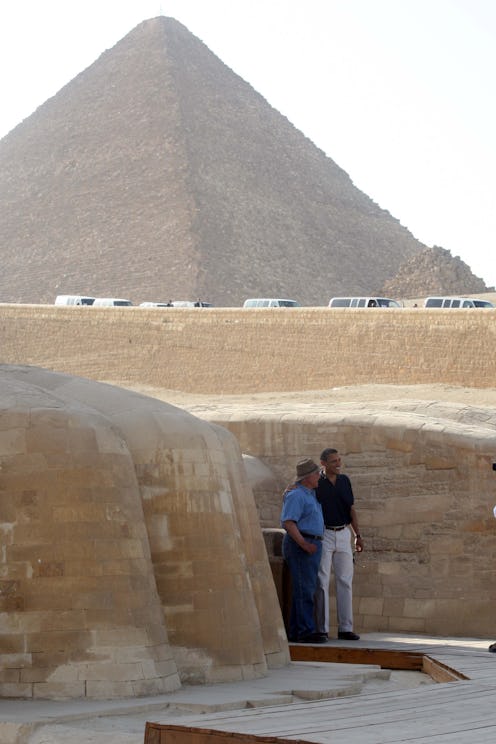News
What's Next for the U.S. and Egypt?
All eyes are on Egypt this week as the country descends further into violence and chaos. It's a crisis rife with ambiguity. Does last week's forceful overthrow of democratically-elected President Mohammed Morsi still qualify as a military "coup" if the majority of Egyptians supported it? What makes this revolution any more promising than the overthrow of Mubarak just 29 months ago? Is this democracy at work—or a guise for yet another authoritarian takeover?
As Saudi Arabia announced a $5 billion aid package for Egypt Tuesday, it's becoming cleat the United States government doesn't have the luxury of pondering their role much longer. A variety of factors are at stake for the U.S.: not only the $1.5 billion dollars it gives in annual aid to Egypt, but also the country's national security interests, and its global image as defender of democracy abroad.
It's a dilemma that's left the Obama Administration and Congress divided. While the Obama Administration has so far been reluctant to criticize the new interim government, not everyone in Congress is on board. After thinking "long and hard," Senate Foreign Relations Committee member John McCain (R-AZ) announced his belief Monday that the U.S. should withdraw our support from Egypt until a civilian government is restored. He's joined by the chairman of the Senate Armed Services Committee Sen. Carl Levin (D-MI), Sen. Patrick Leahy (D-VT) and Sen. Rand Paul (R-KY), among others, in taking the stand.
Meanwhile, Defense Secretary Chuck Hagel has been on the phone with Egypt Armed Forces Chief Abdul Fattah al-Sisi, both in the days preceding the crisis, and throughout the aftermath. Perhaps most importantly, President Obama has made the official decision not to call last week's events a "coup." (This semantic detail has the enormous impact of preventing a law from going into effect that automatically suspends all foreign aid in the case of a military coup.)
In a visit to the Middle East this week, five U.S. Senators were warned by Egypt's neighbors that the consequences of withdrawing funding to Egypt would be dire. The military receives four-fifths of the aid, and in turn is expected to promote stability in the region by suppressing extremist movements and helping to protect Israel's border.
And then, there's Egypt's role in the global economy. The country's instability in recent years has been enough to drive away most direct foreign investment, which already hit its lowest level in 2013 since 1980. Withdrawing U.S. aid would risk sending the Egyptian economy into even more of a tailspin.
For now, the Obama Administration gets the final say on Egypt. But if the unrest spirals on at this rate, we may very well see opinions change.
